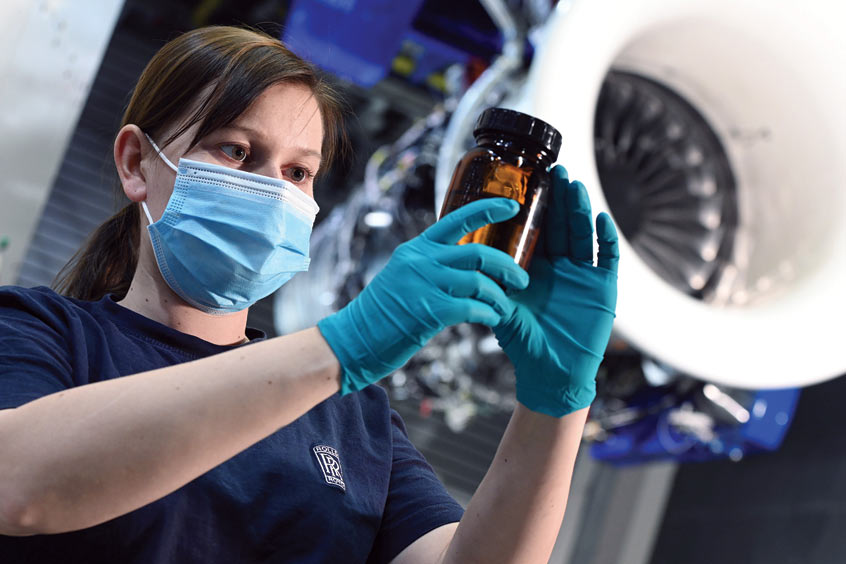ACE 2026 - The home of global charter.
 The bimonthly news publication for aviation professionals.
The bimonthly news publication for aviation professionals.



Rolls-Royce has conducted the first tests of 100 per cent sustainable aviation fuel (SAF) in a business jet engine, as part of its ongoing ambition to play a leading role in enabling the sectors in which it operates to reach net zero carbon by 2050. The tests on its latest business aviation engine in development, the Pearl 700, in Dahlewitz, Germany, come weeks after unblended SAF was successfully used for the first time in engine ground tests on a Trent 1000 engine in Derby, UK.
This test demonstrates once again that Rolls-Royce's current engines for large civil and business jet applications can operate with 100 per cent SAF as a full drop-in option, laying the groundwork for moving this type of fuel towards certification. At present, SAF is only certified for blends of up to 50 per cent with conventional jet fuel and can be used on all current Rolls-Royce engines.
The SAF that was used in the tests was produced by low-carbon fuel specialist World Energy in Paramount, California, sourced by Shell Aviation and delivered by SkyNRG. This unblended fuel has the potential to reduce net CO2 lifecycle emissions by more than 75 per cent compared to conventional jet fuel, with the possibility of further reductions in future.
Dr Joerg Au, chief engineer, business aviation and engineering director Rolls-Royce Deutschland, says: “Sustainable aviation fuels have the potential to significantly reduce the carbon emissions of our engines, and combining this potential with the extraordinary performance of our Pearl engine family brings us another important step closer to enabling our customers to achieve net zero carbon emissions.”
The efficient Pearl 700 combines the Advance2 engine core with a low pressure system, resulting in an eight per cent increase in take-off thrust at 18,250lb compared to the BR725 engine. The engine offers a 12 per cent better thrust-to-weight ratio and five per cent higher efficiency, while maintaining its low noise and emissions performance.
It brings together innovative technologies derived from the Rolls-Royce Advance2 technology demonstrator programmes with its experience from the Rolls-Royce BR700. This includes a 51.8” blisked fan, a high pressure compressor with a market-leading pressure ratio of 24:1 and six blisked stages, an ultra low emissions combustor, a two-stage shroudless high pressure turbine and an enhanced four-stage low pressure turbine.